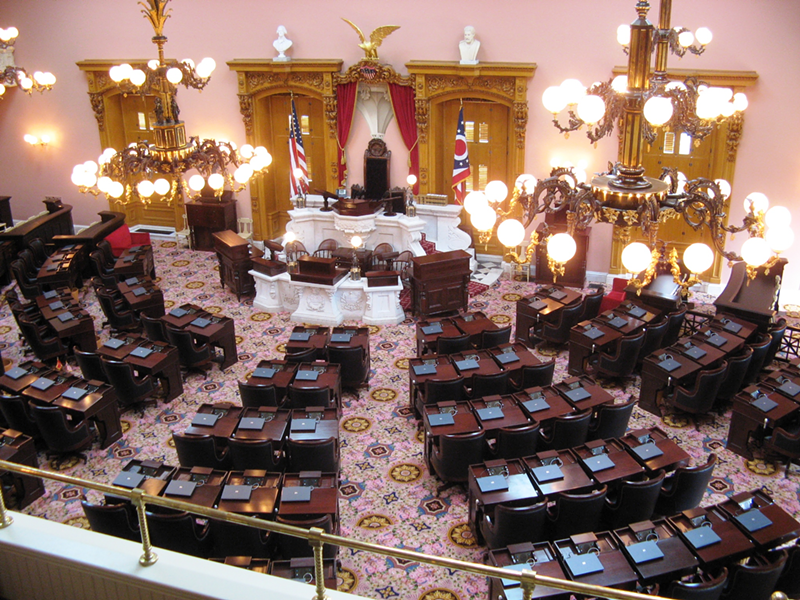A resolution in the Ohio House of Representatives that would make it harder for voters to put constitutional amendments or changes to state law on the ballot is drawing ire from voter advocacy groups and some Democrats in the House.
House Joint Resolution 19, widely seen as a legislative response to this year’s failed Issue 1 drug sentencing reform amendment effort, would amend the state’s constitution to shorten the amount of time supporters have to gather signatures to put a constitutional amendment on the ballot and require a higher ratio of voters to approve an amendment once it gets there.
The proposed resolution would also make it more difficult for groups to put legislation in front of lawmakers via a petition process.
If three-fifths of the Ohio House and Senate approve HJR 19, it will go before voters in May. If approved, it would shift a couple big milestones needed to put an amendment or law directly before voters.
First, the law would limit the validity of signatures collected by groups supporting an amendment to 180 days and push forward the deadline for collecting those signatures from July to April. Supporters of a proposed amendment would need to collect enough signatures to equal 10 percent of the turnout in the last gubernatorial election.
Once on the ballot, a proposed amendment would need 60 percent of the vote under the potential new law. Right now, it simply needs more than 50 percent to pass.
The proposed resolution would also affect groups’ efforts to put laws directly before lawmakers.
Currently, supporters of an effort to make lawmakers consider legislation must gather signatures equal to 3 percent of the voters in the last gubernatorial election (129,553 people as of the last election).
That puts the measure in front of lawmakers. If lawmakers don’t pass the resolution, supporters must again gather enough valid signatures to equal 3 percent of voters. Then it ends up on a ballot for statewide voters to approve or deny.
Under the proposed new law, supporters would need to gather signatures equal to 5 percent of the turnout of the last gubernatorial election, but after that, a proposed amendment would automatically go on the ballot if lawmakers didn’t act.
The proposal would bar lawmakers from changing a law passed this way for one full year after it passes.
Some groups say many of the changes in the proposed amendment subvert the will of voters.
"We assert that the drastic changes proposed in HJR 19 would only result in stifling direct democracy by grassroots groups like the League and would create an unfair advantage for groups with large campaign coffers," said Jen Miller, the Executive Director of the League of Women Voters of Ohio. The League held a news conference in Columbus today with progressive group Common Cause Ohio and others to protest the resolution.
But lawmakers supporting the resolution say it’s an effort to protect Ohio’s constitution from a “cottage industry” of outside groups increasingly putting forth constitutional amendments.
“We are trying to make sure that our constitution is not for sale and making sure that outside groups cannot buy their way into our constitution,” Republican State Rep. Sarah LaTourette, a bill co-sponsor, told reporters recently. “But at the same time, we’re trying to make sure that citizens’ voices continue to be heard.”
The resolution’s other co-sponsor is Democratic State Rep. Glenn Holmes. However, some of Holmes’ party mates are crying foul at the legislation.
“This dangerous new restriction on democracy would silence citizens’ voices and further tilt the balance of power to corporate, out-of-state special interests who have the power and money to change our constitution under this misguided plan,” State Rep. Bride Rose Sweeney said in a statement last week.






